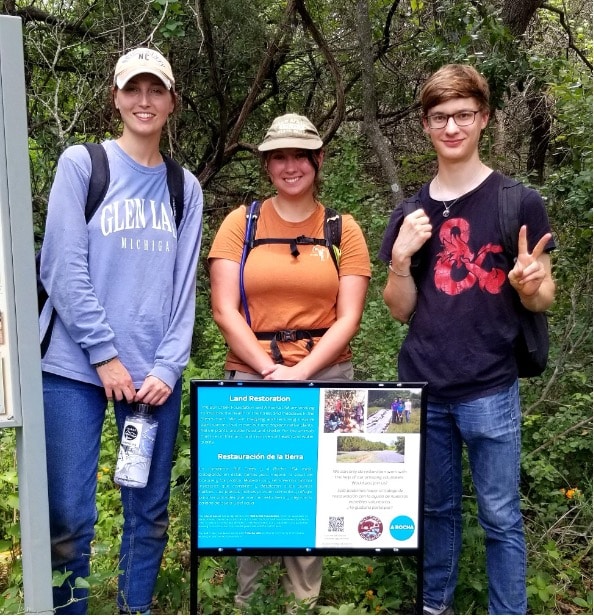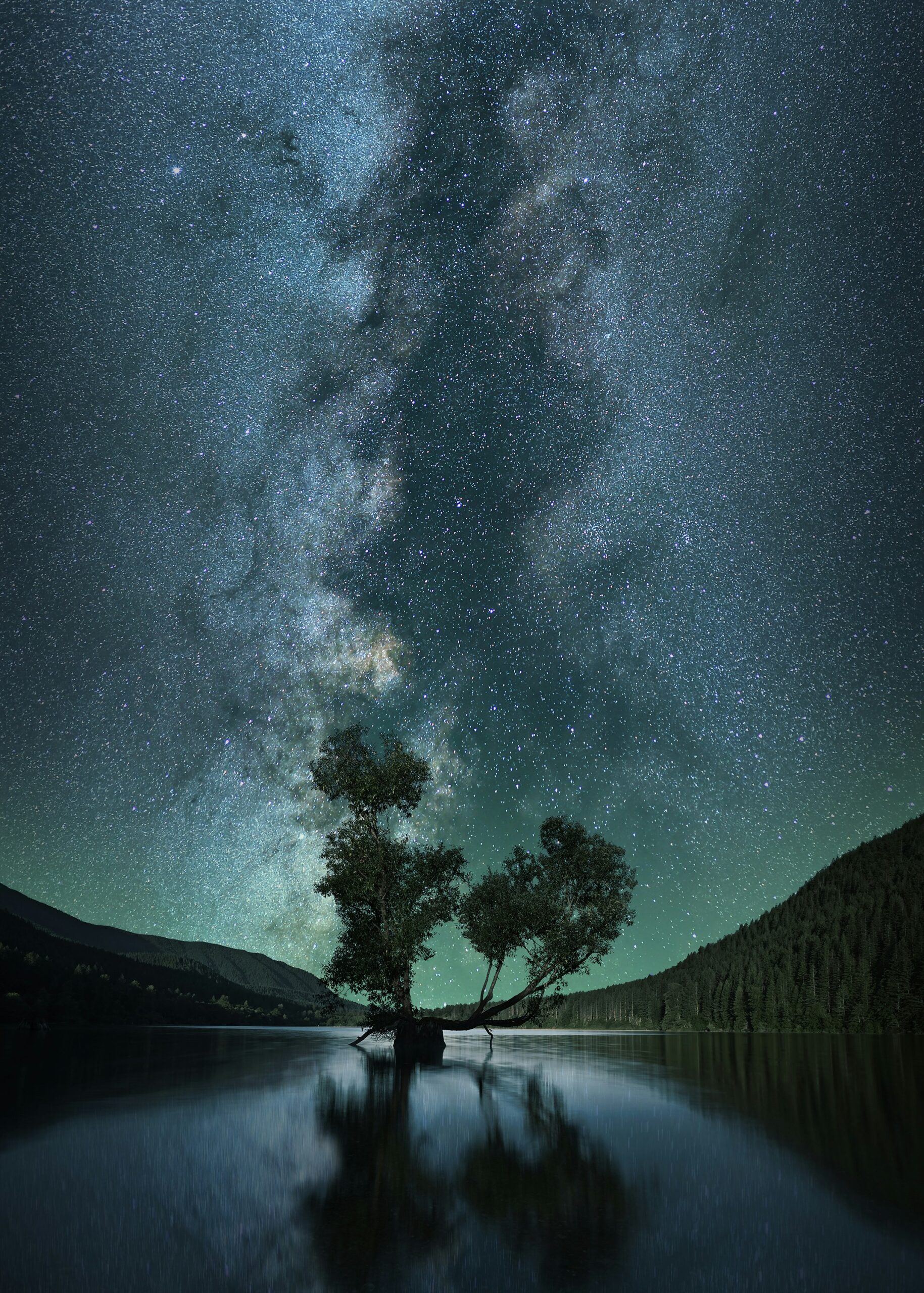A fatwa for nature
The news that Indonesia’s senior Muslim clerical body, the Ulema Council, has issued an unprecedented fatwa against illegal hunting and the poaching of endangered species has caused considerable media interest. In the secular west, two typical reactions (nature good, religion bad) seem to meet each other coming from different directions, but on the whole the news has been received positively. Conservation organizations such as WWF, who work in countries where religious groups are highly influential, have welcomed the fatwa as a positive step forward. As for A Rocha, our teams in Ghana, UK, Lebanon and Kenya have had their own productive partnerships for conservation with Muslim groups and their leaders.

The Indonesian Fatwa will help to protect the many Critically Endangered species in Indonesia such as the Sumatran Rhinoceros (Dicerorhinus sumatrensis) pictured here. The image shows Ratu and her four-day old offspring Andatu – the first Sumatran rhino to be born at the Sumatran Rhino Sanctuary in Indonesia. Andatu means “Gift from God” in Bahasa. It is likely that there are less than 200 Sumatran Rhinos left in the wild.
Photo credit: Susie Ellis, IRF
Either way, the story serves to illustrate that it is now mainstream for conservation organizations to understand that religious groups can play a central role in achieving conservation goals. Influencing human choices and behaviour so that we do not make a bio-desert of the world around us is now seen as a critical component of species and habitat protection, so the beliefs that determine those choices and actions are increasingly under the spotlight. One familiar and quite pragmatic approach is to celebrate and promote the teachings about sustainable living that are within many religious traditions. Organizations such as the Alliance of Religions and Conservation have been working hard to give visibility to such perspectives and to bring their insights to the fore. They have done a great deal around the world to encourage those who wish to put them into practice. More recently, initiatives to reach out to ‘faith groups’ have emerged from most of the major secular environmental NGOs. So as we welcome all of these developments, perhaps this particular Christian conservationist might be permitted a couple of comments to his secular friends?
The first is to remember that people within each ‘religion’ do not typically understand themselves as belonging to a convenient category called ‘faith groups’ which can then be recruited for conservation. While they share more common ground than is often apparent, and certainly conservation is one of the areas where people from different faiths more readily agree, even so they adhere to the beliefs of their particular community. Those beliefs are distinct and resist facile synthesis and ‘faith’ as popularly understood is not necessarily a common denominator. In fact, if you take the example of some western Christian groups, their world view will frequently have far more in common, culturally and intellectually, with that of their secular, agnostic neighbours, than with Hindu believers in the same street. So, while it might be convenient for those of a secular viewpoint to approach ‘religious groups’ as one, and so to approach all ‘faiths’ as if they were the expression of something called ‘religious belief’, experience has shown that it is those within a particular faith community who are best able to talk meaningfully with their fellow believers on their own terms. While celebrating the benefits of interfaith partnerships and collaboration, when it comes to advocating for conservation, we need to resist the temptation to lump everyone together under the heading of ‘religious people’. A more fruitful approach is to encourage and equip the conservation leaders and spokespeople within those different faith communities, making partnerships where distinct differences are acknowledged.
The second comment is one about definition. What are ‘religious’ or ‘faith groups’? Historic and formalized religions may be easily identified, but the consensus of environmental commentators all over the world is that it is global, contemporary and unformalized beliefs, such as materialism and individualism which are undoubtedly causing the greatest environmental havoc. Unfortunately, they can be found to be powerfully influential even within faith communities such as Christian ones which should give them no shelter. So, as well as recruiting ‘the historic faiths’ to the cause, the conservation community needs to establish credible alternatives to these dominant western-led or western-derived ‘quasi-religious’ creeds. As that very community is currently involved in its own lively and essentially religious debate about how to value nature, we can take it as a good sign that the old secular and invalid framing of faith as illusion, and conservation science as objective reality, has finally broken down. It only remains for a more effective and united challenge to the contradictions of materialism and to the exclusively financial measurement of wealth to emerge. And for more careful and inclusive distinctions to be made when we talk about religion or faith groups so that civic, political, business and finance leaders are equally called to articulate more clearly the beliefs that so obviously lie behind their environmental choices.
We are happy for our blogs to be used by third parties on condition that the author is cited and A Rocha International, arocha.org, is credited as the original source. We would be grateful if you could let us know if you have used our material, by emailing [email protected].




I enjoy your writing Peter. It still feels far from mainstream (in Europe at least) for conservation organizations to understand that religious groups can play a central role in achieving conservation goals. But perhaps there are some encouraging signs?
Thanks Darren – yes there is certainly a troubling disconnect between the secular “west” and the global south where biodiversity is concentrated. It is potentially problematic because where conservation funds are raised and decisions are made in the “west”, beliefs are regarded as “personal” and so remain unexpressed, whereas in the south where there is a more seamless and easily expressed conversation between action and its faith motivations, important motivations for conservation can go unregarded by conservation professionals arriving from another world. But I do believe there are encouraging signs, and paradoxically it is the realisation that conservation itself is inevitably a religious exercise even for secular people that is moving this forward. I mean by this religious with a very small “r” – but in the sense that it is an expression of convictions that are not exclusively empirically derived at least. And it is the profound struggle to establish a “value for nature” that I think is driving it, as well as the increasingly pluralistic character of the western world. Another paradox is that while Christians were more happy to accept the social dualism between “faith” and “life” when it came to public discourse, other religious traditions do not. So”faith” is now present in the public western square in quite a new way.
Thanks Peter, you’ve articulated this brilliantly!
My thoughts are that when we recognise everyone has a worldview of some sort – capitalist, hedonist, Christian, Hindu, etc, or a mix of the many – we realise we can’t lump ‘faith groups’ together under one banner and lecture them, especially not with a one-size-fits-all secular language. Everyone has put their faith in something/s and it’s when we begin to unpick what those things are, and talk in a language comprehensible to those ‘faith groups’ that we begin to have a chance of bringing about change! Hence your point that those within a group are best placed to talk to the group…
But some ‘faith groups’ are surely impossible to change! For example, I don’t think we can encourage the many among us who have pinned their faith in little more than hedonism/utilitarianism to care for the planet… unless of course we challenge that faith from the start?
I appreciate your careful and accurate reading, Will. I assume the only “change agent” is the truth and Christians believe that is mediated personally by God himself. Interestingly it seems to be a core Christian belief that no-one is beyond being changed either. As Francis Schaeffer pointed out, it can be compassionate and not judgemental to discuss candidly where belief systems fail as well as where they are coherent, and if we see creation ravaged by idolatries of money or utilitarianism in other forms, then there is more at stake than the simple personal well-being of those who are trusting in them. I suspect however that many people have a problem with the way that Christians go about these discussions than with the content of what they say. But if anyone actually reads our exchange, and gets provoked to contribute, perhaps we will find out whether or not I am right!